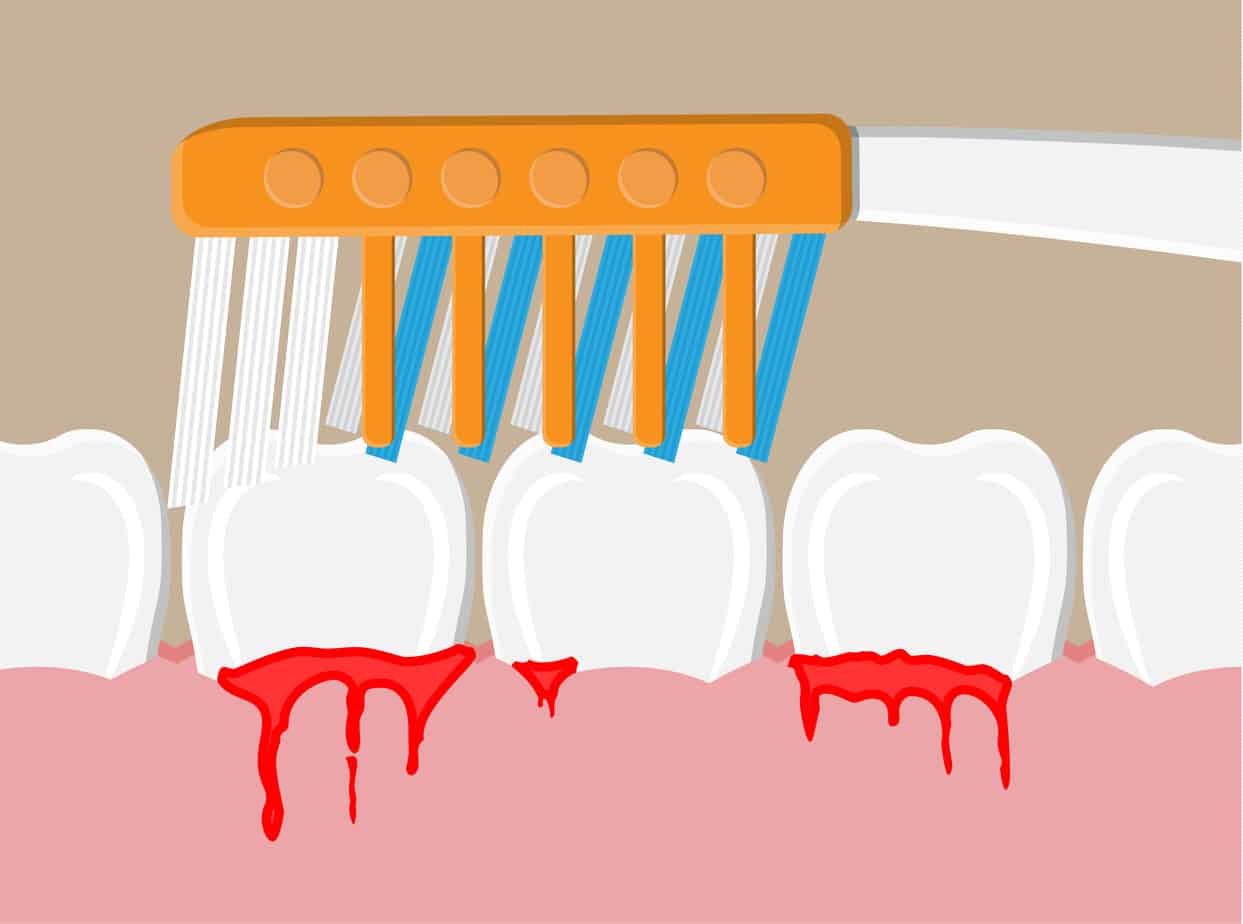Bleeding gum happens quite often when you floss your teeth. Most people will stop flossing, assuming it is the cause of bleeding. This article will tell you whether bleeding can be a sign of gum disease or periodontal disease.

Bleeding Gum has many causes. The major risk factors of bleeding gum are the following:
Local inflammation or swollen gums.
The presence of hardened plaque also known as tartar.
Improper tooth brushing or if you brush your teeth less than 2 minutes.
If your flossing technique is incorrect or if you do not floss regularly
Crowded teeth.
If you have an overhang on fillings or crowns
Pregnancy
Immune deficiencies in HIV or organ transplant patients.
Genetic disposition
Diabetes.
The diagnosis or treatment of bleeding gum depends on the duration of the inflammation as well as on the response of the body to the inflammation.
If the cause of inflammation is the dental plaque that has been present for a few weeks due to poor dental care, it can be removed easily. Proper tooth brushing twice a day and regular flossing can solve this problem within 3 to 5 days. You don’t need any complicated treatment if your plaque is not hardened.
If the plaque on your teeth is converted into tartar, then you need to consult your dentist. In case of the presence of tartar, a deep cleaning may be required, rather than a daily dental cleaning.
If you have an excessive filling, it can also cause your gums to bleed. Only your dentist can remove overhang filling with small discs or burs. In some cases, a new filling or crown is required to prevent gum bleeding and other complexities in your gum lines.

If you clean your teeth regularly and your gums bleed, then you need to consult your dentist. If you have not seen your dentist for a long time, you might be unaware of the plaque that is getting harder on your teeth constantly. The plaque could be due to improper tooth brushing or flossing techniques.
For good oral hygiene, brush your teeth twice a day. If your gums still bleed, then try brushing your teeth for 3 minutes. If it worsens, get medical advice.
Floss regularly before going to bed, every night, and follow the proper flossing technique to keep your teeth and gums clean. If bleeding is due to an overhang on the filling or crown, remove it as soon as possible to prevent any damage to your teeth.
In most cases, plaque is the basic reason for gum bleeding. Remove it to enjoy good oral health.
Click here to schedule your appointment with our dentist in Southport.